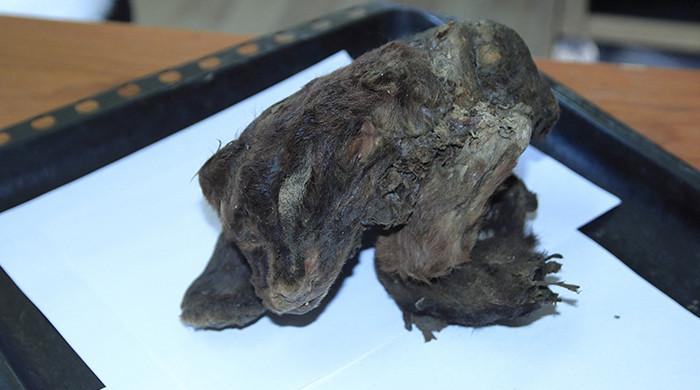YAKUTSK: The sabre-toothed cat cub is almost small enough to hold in one hand, but its discovery after 32,000 years is a momentous event for palaeontologist.
It was around three weeks old when it died in what is now northeastern Russia — and the permafrost has kept it well-preserved ever since.
Researchers stumbled upon the cub four years ago while digging for mammoth tusks near the Badyarikha river in Sakha, also known as Yakutia and Russia’s largest republic.
Scientists from the Academy of Sciences in Yakutia in the Far East say it is a unique find.
“Nowhere else has it been found in such good preservation,” said the academy’s Aisen Klimovsky who co-authored a paper on the cub published in the journal Scientific Reports this month.
Unlike previous skeletal specimens unearthed in Texas, this cub still has its dark brown fur.
“This is the first find that will show the world what they really looked like,” said Klimovsky of the Department for the Study of Mammoth Fauna at the institute in Yakutsk, the regional capital.
“It unlocks nature’s big secret, so to speak.”
Bordering the Arctic Ocean, Yakutia is a vast region of swamps and forests larger than Argentina, around 95% of which is covered in permafrost.
Rising global temperatures caused by climate change are melting much of Russia’s permafrost, revealing animal remains and other ancient traces. Earlier this year, scientists at the Yakutsk institute were able to study a 44,000-year-old wolf carcass pulled from the melted tundra.
The cub is part of the homotherium genus, which lived across North America, Eurasia and Africa from around 4 million years ago to 12,000 years ago.
The animals were about the size of lions when full grown and are known for their serrated upper incisors.
Head of the Mammoth Fauna department and a co-author of the Nature paper Albert Protopopov said the discovery would be a boon to palaeontologists around the world.
“It’s a real sensation,” he told Reuters.







